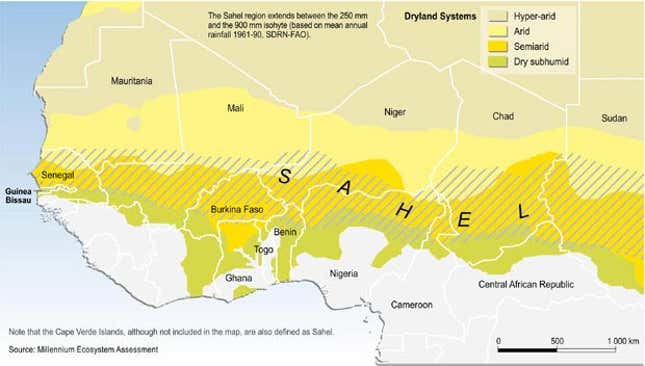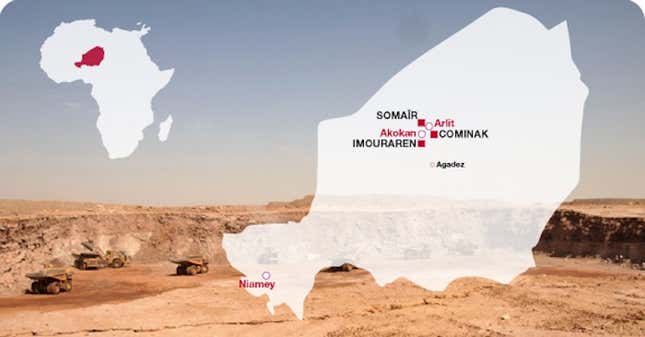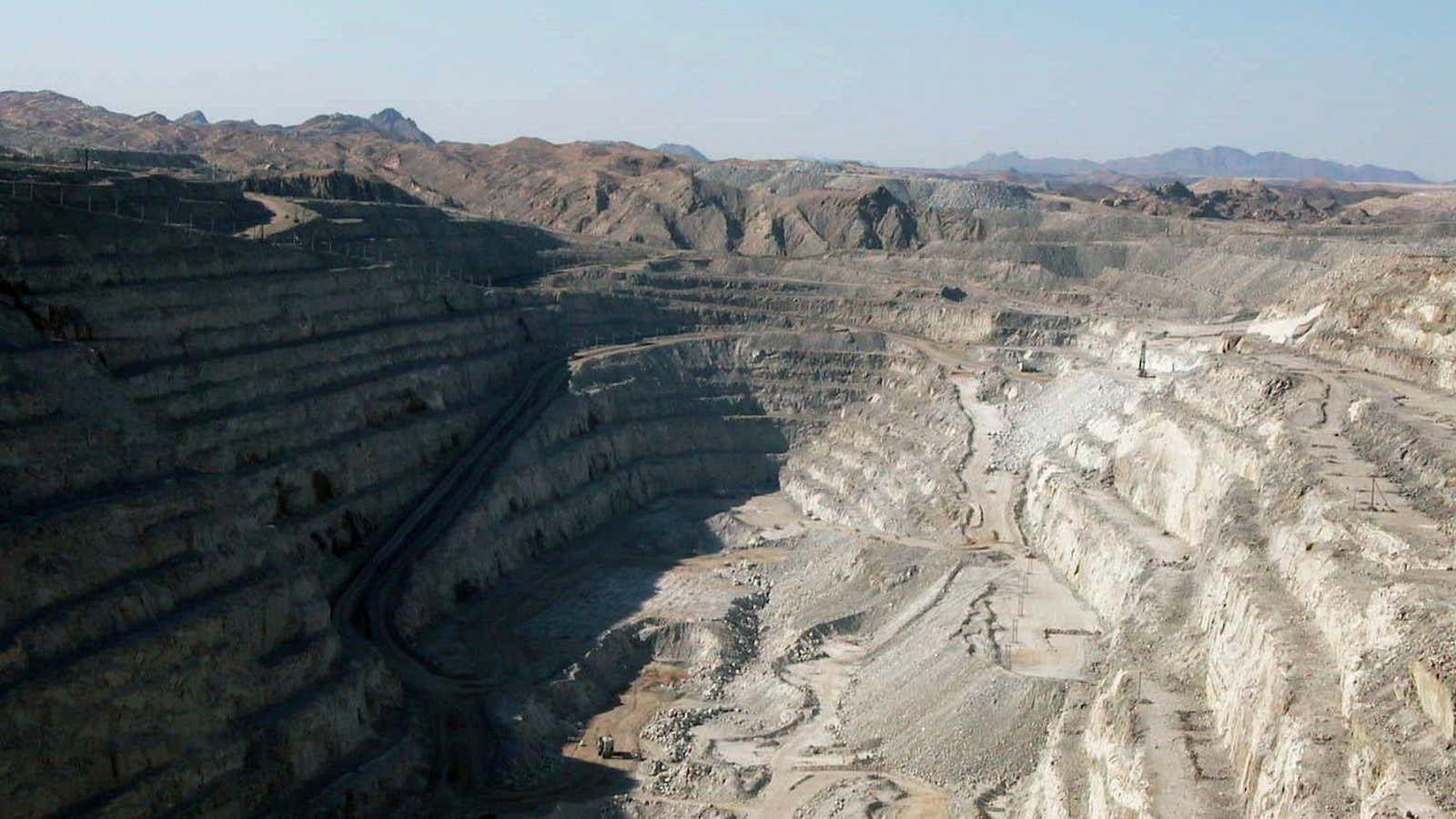In the first days of the invasion of Mali, French president François Hollande promised (French) that his country had “neither economic nor political interests” in Mali.
While that’s true, France has important strategic interests in promoting stability in the Sahel, the strip of land between the Sahara and the tropical savanna below it, covering parts of Senegal, Mauritania, Algeria, Niger, Chad, Sudan and Eritrea–in addition to Mali.

Beyond France’s historical connection to the region (many of its former African colonies were located there), France has a profound economic interest in the area, if not in Mali itself.
France receives almost 80% of its energy from nuclear power, more than any other country in the world. The state-owned energy giant, Areva, which mines for uranium and builds and operates nuclear plants, gets a third of its uranium (French) from two mines in Niger, where it is the second largest employer after the state. Later this year, Areva is expected to begin extracting uranium from a site called Imouraren, which is thought to contain the second largest uranium deposit in the world.
Al-Qaeda’s fate in Mali, where the group’s North African wing has taken a serious role in the ongoing conflict, is intertwined with its position in Niger, as the two countries have become the group’s main strongholds in the Sahel. As a precaution, France has even dispatched troops to Niger to guard its mines there.

Mali itself has few valuable resources other than gold, which represents 70% of its exports. That may be changing now as Rockgate, a Canadian mining company, begins to explore a uranium deposit at Faléa, a mine in Western Mali straddling the border of Senegal and Guinea. Areva is already exploring a deposit in Senegal (in Saraya), and there have been talks of a partnership between Rockgate and Areva to explore the mine in western Mali.
France didn’t go into Mali to protect its energy resources, but it bears remembering that France counts on stability in the Sahel in order to continue satisfying its enormous uranium needs. And the region’s importance to France, and Europe at large, extends even beyond its role as energy supplier. Any instability in the Sahel could also prompt increased migration and illicit trafficking, some of which is bound to spill over into Europe.
